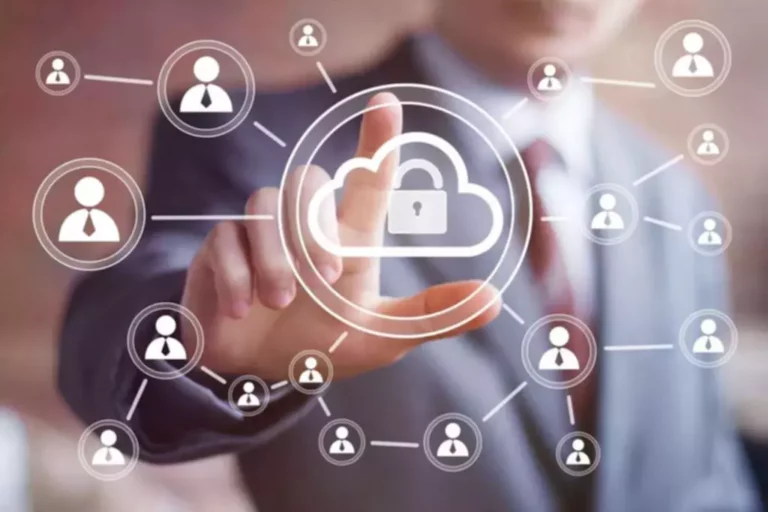The burden of guaranteeing a trustful digital setting – which incorporates cyber-security – has shifted from single actors to a number of inner and exterior stakeholders, both through public pressure or rules and laws. The burden now sits with all kinds of private- and public-sector stakeholders who weren’t historically accountable or accountable within the digital sphere. Think of digital belief https://www.globalcloudteam.com/digital-trust-what-it-means-and-why-it-matters-for-businesses/ as a new prerequisite of excellent old values, corresponding to reliability, credibility or security, applied within the digital house. Fundamentally, digital belief is an important consider an organisation’s sustainable and long-term profitable digitalisation. Most respondents say it’s essential for corporations to provide transparency around their digital-trust insurance policies.

Complexity doesn’t scale and will solely get worse with the interconnectivity and exponential proliferation of new digital end points. Standards and strategies must help reduce these complexities, enhance collaboration and automate our responses, using the potential of any new technology that arises. It is inconceivable to definitively predict future developments, but Deloitte’s Future Foresight enterprise methodology aims to increase our imaginative and prescient and understanding of the forces shaping tomorrow by decreasing the ‘noise’ generated by huge buzzwords and developments. With this mannequin, decision-makers and stakeholders can focus on relevant factors that may otherwise escape them, and turn into empowered to make robust but versatile selections. Consumers even believe some digital-trust tenets are almost as essential as frequent purchase choice elements, similar to value and delivery time.
You May Be Unable To Access Techopediacom
This web site is using a security service to guard itself from online attacks. There are a quantity of actions that would set off this block including submitting a sure word or phrase, a SQL command or malformed knowledge. Some or all of the providers described herein is in all probability not permissible for KPMG audit shoppers and their affiliates or related entities. The data contained herein is of a general nature and isn’t supposed to handle the circumstances of any explicit individual or entity. Although we endeavor to supply correct and well timed data, there could be no assure that such data is accurate as of the date it is acquired or that it’ll proceed to be correct in the future.
Only by making people feel comfy sharing their knowledge and cash online can an enterprise stay in enterprise. For prospects to trade online, they want assurance that their funds will be safe. Digital enterprises must show they’ve implemented cybersecurity techniques that safeguard clients’ funds. While the ethics of the custodians of trust in on-line transactions play an integral part in assuring digital trust, it isn’t the only necessary issue. When an individual resolves to use a company’s digital services or products, they do so as a result of they feel secure handing over their information to the company—proving their digital belief in it.

M&A experts share the combination practices that set probably the most profitable large offers apart. Building a trustworthy digital surroundings requires a multifaceted strategy, will take time, and can be expensive depending on the organization’s dimension. On a nationwide and even world scale, digital belief helps and enables financial progress. As the world financial system grows more and more dependent upon always-on connectivity, knowledge trade and technological innovation, digital trust is more and more turning into a elementary a half of doing business. In a trusting relationship, one doesn’t have to worry about revealing vulnerabilities; each get together can rely on the responsible dealing with of no matter they reveal. In the context of digitalisation, trust is the individual’s confidence in an organisation that data will be handled securely and responsibly within the digital environment.
The extra digital belief an organization receives, the extra likely will most likely be to gain extra users. In the digital age, trust is no longer solely based on personal experience and status. Trust is established through algorithms and popularity techniques that determine credibility and reliability. Given this disconnection between assumption of coverage and lack thereof, it’s probably no shock that 57 percent of executives report that their organizations suffered a minimal of one materials data breach prior to now three years (Exhibit 3).
Designing The Fashionable Digital Perform
Cyber-security is an enabler to reach that peak – and to ultimately support the creation and preservation of a trusted and invincible firm model. By contemplating digital trust’s implications on long-term cyber-security methods, and what ought to issue into the event course of, decision-makers and stakeholders can turn VUCA on its head. Volatility turns into imaginative and prescient, uncertainty becomes understanding, complexity turns into readability and ambiguity becomes agility.
This was the question posed at a latest Forum Einstein high-end thinkers’ roundtable I attended. Twenty preeminent and internationally acclaimed thought leaders have been requested to offer their views on nationwide and worldwide responses to this query. Attendees represented national and international government agencies, academia, legislators, regulators, telecommunications and ICT vendors, and worldwide standards our bodies. Check out ISACA’s webpage on digital belief, which dives deeper into the Digital Trust Ecosystem Framework, quick programs, associated insights and extra. In addition, buyer expectations about online safety and privateness are rising, elevating the stakes on transparency, danger administration, and governance.
Cyber Risk Chief Deloitte Germany
The staggering influence, relevance and importance of data must be acknowledged proactively in cyber-security methods – governing, somewhat than merely guiding. As we shift towards data- and platform-driven digital business models, we are surrounded by sensible and personalised companies. They generate and use private data (mobility data, well being statistics, financial transaction particulars, and so on.).
Here’s how a secure Customer Identity & Access Management (CIAM) answer like Okta’s could make the consumer experiences that your organisation delivers stand out from competitors’. Learn about Deloitte’s offerings, folks, and culture as a world provider of audit, assurance, consulting, financial advisory, threat advisory, tax, and related companies. A useful train when growing a cyber-security technique is to extract key questions and steps from an implication’s insights.
However, most corporations aren’t placing themselves ready to live as much as consumers’ expectations. The survey outcomes recommend that delivering on digital trust might provide significant advantages past satisfying client expectations. Digital-trust leaders are outlined as those corporations with staff who follow codified knowledge, AI, and basic ethics insurance policies and that engage in a minimal of half of the best practices for AI, data, and cybersecurity that we asked about.

Over the past 20 years, he has been contributing to transformative and progressive shopper options in varied roles throughout all industries. These companies are outperforming their peers each in loss prevention and business development. And the data suggest that a majority of customers imagine that the companies they interact with are being transparent—at least about their AI and information privateness policies. Sixty-seven p.c of consumers have confidence in their ability to find information about firm data privacy policies, and a smaller majority, 54 percent, are confident that they can floor firm AI policies. The operational life cycle of digital belief is a fast-moving and never-static setting.
How Digital Transformation—and A Challenging Environment—are Building Agility And Resilience
Unlike social attitudes, legislation and regulation, worldwide requirements are free from geopolitical and national prejudice. They are accepted globally and may move at a tempo higher aligned with technological advancements as they are principles-based rather than prescriptive in nature. This is the opportunity for international standards to proceed to deliver social impact. ISACA’s third annual “State of Digital Trust” analysis was carried out in the first quarter of 2024. It includes year-over-year data the place out there and explores new areas, including familiarity, priority, confidence, maturity, obstacles and duty. It is the mix of a predominant mindset, actions (both huge and small) that we all commit to every single day, and the underlying processes, programs and methods supporting how work gets carried out.

As the digital enterprise ecosystem continues to grow, an organisation’s capability to domesticate digital trust will turn out to be more and more vital to its success. This is why, based on predictions made by IDC Research, more than a third of organisations will have replaced Net Promoter Scores and comparable metrics with digital trust indices by 2025. Over the next few years, prospects and markets will demand a unified approach to measuring belief and will begin to make use of quantitative metrics to assess things like security, privacy, compliance and customer experience. Still, modern digital businesses that need to be perceived as sincere, reliable and reliable must pay more consideration to cybersecurity than ever earlier than. To build trusting relationships with their customers, they’ll need to establish the proper expertise foundation – one that may implement security and identification policies with out introducing friction. And they’ll need to remember that digital trust is now a crucial business enabler that can foster lasting customer loyalty.
In online transactions, this need for trust is extrapolated, considering the power of people to exchange worth despite geographical restrictions. Consequently, the organizations providing the infrastructure for online transactions are the de facto custodians of belief. Furthermore, the velocity and scale of digital transactions and interactions problem conventional trust fashions. Trust should be established quickly and successfully, often with out direct human interaction. This evolution requires new approaches and technologies to ensure belief and security in the digital realm.
Unlike the Stanleys, Ford thought relentlessly in systems—when creating the assembly line, when pondering of costs, and when imagining client expectations on speed energy, range, reliability, and, particularly, price. Plus, a peripatetic podcast with the economist Tyler Cowen, and a glance back on the Stanley Steamer and the way its demise presents lessons for the car market of today. Blockchain expertise launched immutable records and made the decentralization of knowledge more sensible. Consequently, organizations can now effectively retailer transactions in a resilient system while additionally benefiting from the cryptographic superiority of blockchain technology to carry delicate info.
- Senior partners Alex Singla, Kate Smaje and their staff looked at the practices of digital-trust leaders to see what they’re doing in a different way.
- Digital belief is the confidence users have in the capacity of individuals, technology and processes to create a secure digital world.
- Finally, the Internet of Things implies that on an everyday basis units are linked to the web.
- These firms are outperforming their friends each in loss prevention and business progress.
These units usually are not being constructed with safety in mind, thus opening them to the risk of hackers and data breaches. In order to construct confidence, IoT system manufacturers must first give consideration to enhancing the security in the device authentication course of. Trust cannot be given except the device has a strong authentication technique which protects users from malware. Then, IoT must protect private, delicate data shared on the system by way of encryption.
As we approach the widescale adoption of Industry 4.0 and Society 5.zero in combination, thereby evolving into the trendy intelligent world, this creates an ecosystem primarily based largely on digital expertise and progressive knowledge use. A pivotal complexity of this clever world is that not all data is managed by a single organization. Technology might be owned and information shall be transferred on a many-to-many basis, thus creating a complex net and sphere of affect and management.
Eventually, machines will automate the decision course of by calculating the extent of confidence in a program. This will require more data to be supplied about an organization’s service or product, creating increased transparency that may also build digital belief. Digital trust is a multifaceted concept that underpins our interactions and transactions in the digital age. It depends on reliability, credibility, security, and privateness to create confidence in digital platforms, technologies, and identities. As we proceed to embrace the digital revolution, understanding and fostering digital belief become more and more important for all stakeholders involved. A take a glance at the practices of digital-trust leaders shows that their success starts with objective setting.
